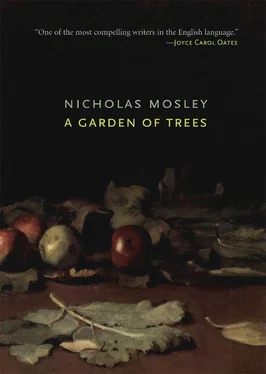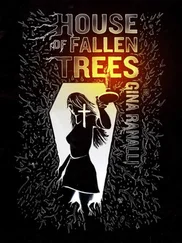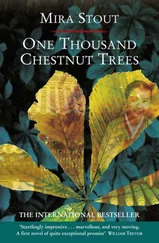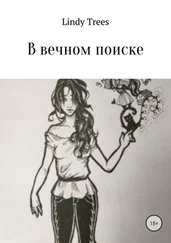“The new beauty,” Marius said, “is the sound of a swan’s wing and the beginning of fear.”
“Look!” Annabelle said. “Look! There is a shooting star!” Some million miles beyond her pointing finger a star shed out its light some million years ago and vanished.
“There are always shooting stars,” Peter said. “Whenever you look into the sky you see one. That is why people think them so exceptional.”
We walked around the square with our collars turned up around our ears while Annabelle, in front of us, swung her coat down from her naked shoulder and swept it about on the ground at her feet sending little swirls of leaves wandering wearily into the darkness.
After a silence Peter said, “Tell me more about your island.”
“The only things living,” I said, “are in the sea. Beneath the water blue and gold fish swim among the coral, and you cannot touch them. The island itself is like a sphinx in the desert, and the natives who come there come only by day and by night it is silent.”
“And do they speak?” Peter said.
“They shout and they laugh,” I said, “but I do not remember them as speaking.”
“Oh Marius,” Peter said, “let us go to where they only shout and laugh and where the land is like a sphinx in the sea!”
“We could not shout,” Marius said. “And I think that to live on a sphinx would be sacrilege.”
“But you love sacrilege!” Peter said. “To you sacrilege is so beautiful!”
Marius frowned and said nothing.
“You could be a sphinx,” Peter said.
We stopped beside the statue. “One cannot live in eternity,” Marius said. “One can only live in memory of it. I know this island. It is we who are too old for it.”
“Older than the sphinx?”
“Older than palm trees in the desert. Once the world was a garden and we sat by water and now it is no longer.”
“It is a desert?”
“Except by imagination.”
“We could find new springs.”
“The same trees would grow. We could not sit beneath them.”
“We could climb among the branches.”
“We are too old, too heavy, they would not carry us.”
“There must be a new beginning.”
“There has been an old one.”
“A new one that would carry us like an island in the sea.”
“Like a grave in a churchyard.”
“There is no beginning in graves.”
“You do not know,” Marius said.
“What is memory?” Peter said.
“Memory is a graveyard.”
“Oh Marius, Marius, how I hate this world!” Peter walked away from us into the darkness.
Annabelle put on her coat and we sat on the small stone parapet beneath the statue. There was the sound of water beside us, and the moon made distances solid like ice.
“There is water here,” Annabelle said.
“When you go out of the garden,” Marius said, “you remember what was in it and the death you died there. If you remember this always then the desert is beautiful. If you do not you cannot live.”
“There should be fishes,” Annabelle said.
“If you cannot live you will pretend that you are living. This is the imagination of dreams. But if you remember you will not be dead. This is the imagination of reality.”
“Did you love your island?” Annabelle said.
“I loved it except that I was alone,” I said.
“And did you mind that?”
“I should have gone mad.”
“You go mad with people too.”
“Why?”
“Because you cannot touch them.”
“You can,” I said.
“If you remember,” Marius said—“if always there is before you this sight of yourself being born in blood, and if you say that that birth was the first death I died because of the agony. . ”
“Can you?” Annabelle said.
“. . then you will be able to touch people for a time even if you cannot touch yourself. People can only touch each other in the face of love or tragedy.”
“And yourself?”
“Oh, you can never touch yourself except through others. That is a later development.”
“That is what Peter wants.”
“I can see him talking to a dustman.”
“He will be talking of the moon.”
“He would desire the moon without knowing what to do with it.”
“There is the moon in this water.”
“That is as near as anyone will ever get to it.” Annabelle put her finger into the water and the moon came to life in waves. “One could lie in it,” she said.
“You see, because it is a reflection.”
“Can you only touch reflections?”
“Only those that are true to the things that they reflect.”
“And will they have meaning?”
“They will have reality.”
“I don’t know if that is true.”
“I don’t know what we’re talking about,” Marius said.
Annabelle splashed her hand into the fountain and ripples of laughter seemed to ease across the stillness. “You do, but you’re so crafty,” she said. “And what was it that stopped you going mad?”
“Stopped?” Marius said.
“Yes.”
“Grapefruits.”
“Grapefruits?”
“Yes.” We began to laugh. “I will tell you about it. When I was a boy we used to play a game with grapefruits. My friend would go up to one of the top windows of the house — and it was a very tall house — and he threw grapefruits down at me. I would catch them. It was a very extraordinary feeling and it stopped me going mad.”
Annabelle and I laughed so much that we had to stand up.
“Have you ever caught a grapefruit?” he said. “A grapefruit falling from a very great height?”
“No,” I said.
“You should try it. It is a very extraordinary feeling. And when you miss it, you see, it hits the ground and bursts, and that is tragedy.” Annabelle was making so much noise that he had to stop.
“And when you catch it?” I said.
“Why, you catch it,” he said, putting his hands together gently. “Like this. It is so soft and heavy. And the sound it makes is like love.”
“Love!” Annabelle said, indignant.
“And you had plenty of grapefruits?” I said. “Then where did you live?”
“Where you did,” he said. “On an island in the West Indies.”
I had not imagined this. For an instant it was as if I had a premonition of disaster. In the moonlight Marius’s face had almost assumed the features of a negro or a half-caste — the queer brooding stillness of them that lies at the centre of their laughter. “Which island?” I asked.
He told me. I remembered it. I remembered the dead-smelling town beneath the dead volcano, the deep green of the vegetation that was deeper than seaweed, the tall ruined sugar-cane factories that waited among the trees like monoliths. I had stayed there for a while and had been disquieted by it. It seemed alone among the islands. It was all softness there, all untouchable, the sea deep and dark, unfathomable, alarming to swim in; no boats on it, no slanting square sails to give it colour, no fish; just the deep unending stillness of rottenness among the mountains, and in the town the static garbage smell around the twisted people and above them the bells of the cathedral.
“But there,” he said, “I agree with you. It is impossible to live.”
“How strange that I should never have asked you where you were born,” Annabelle said.
“You don’t ask many questions.”
“No.” She sat down and shivered for the first time in the cold.
“And will you ever go back there?” I said.
“I shall go back when there is something to do. I should not know what to do there at the moment.”
“What is there that you do here?” I said.
“Not much,” he said.
“No.”
Peter came towards us across the grass. “I have been talking to a beggar,” he said.
Читать дальше












